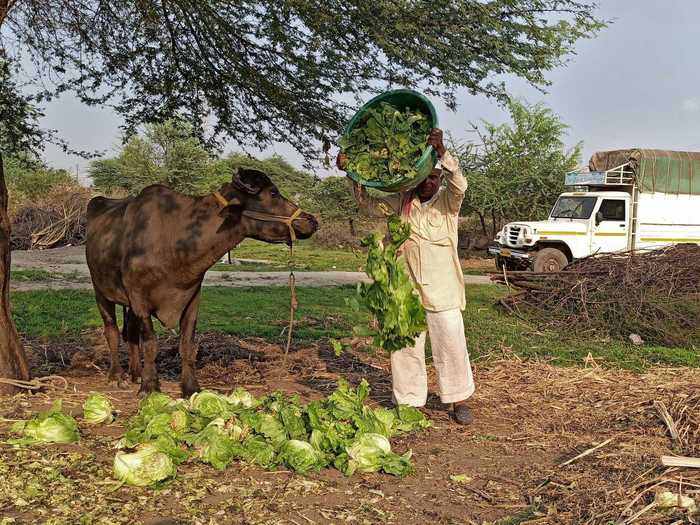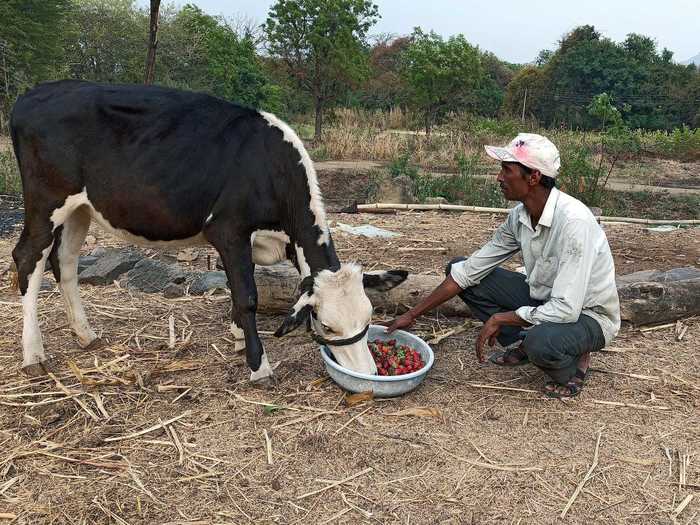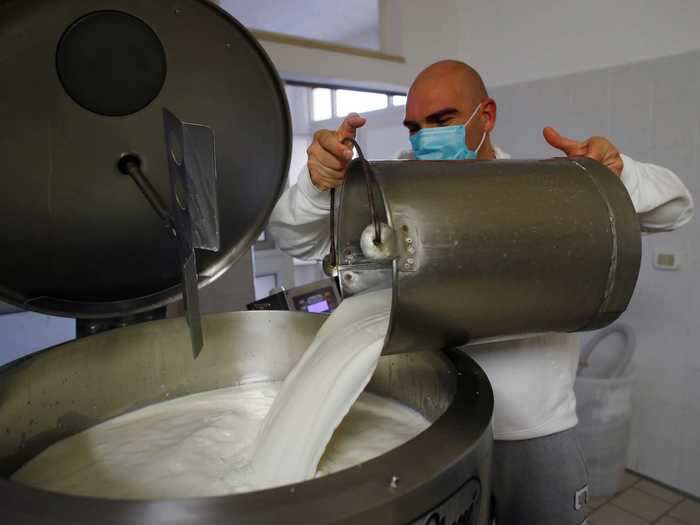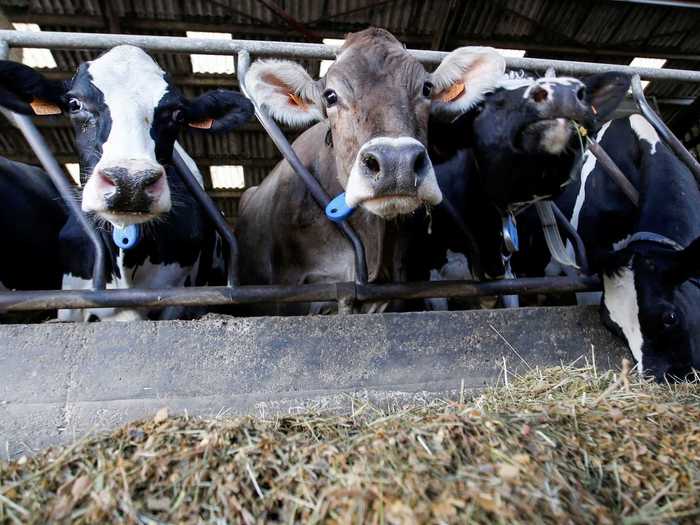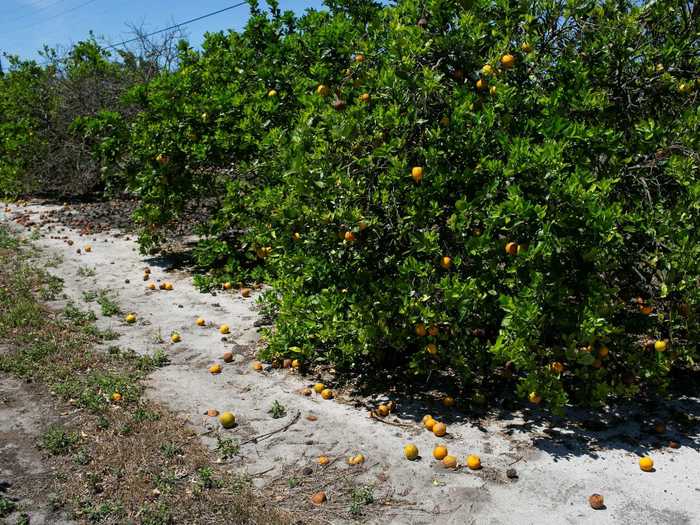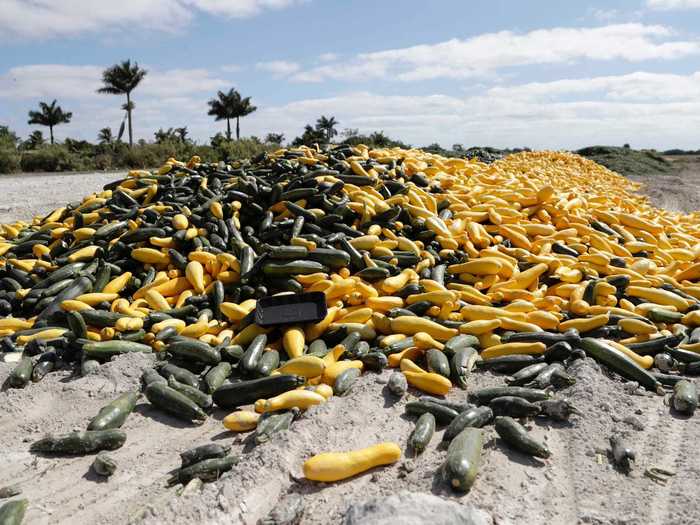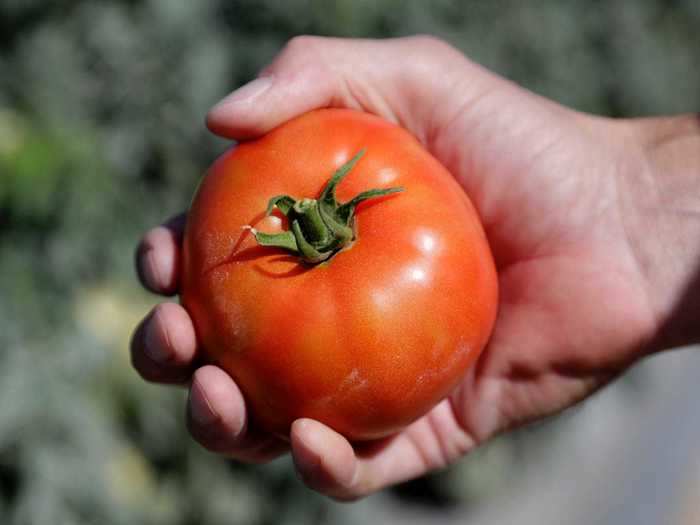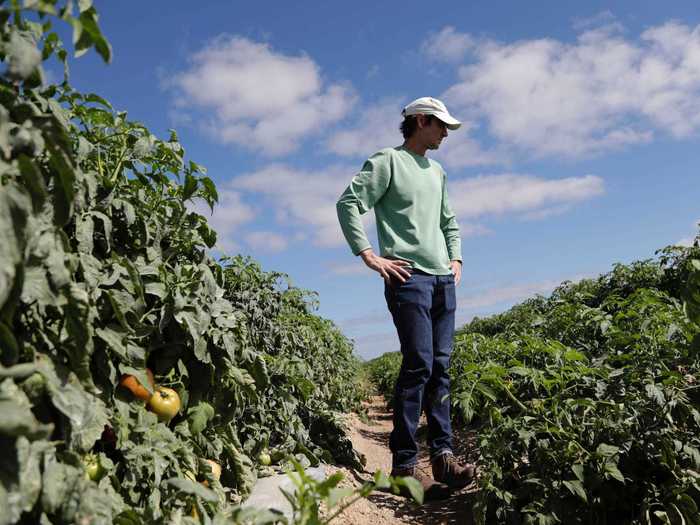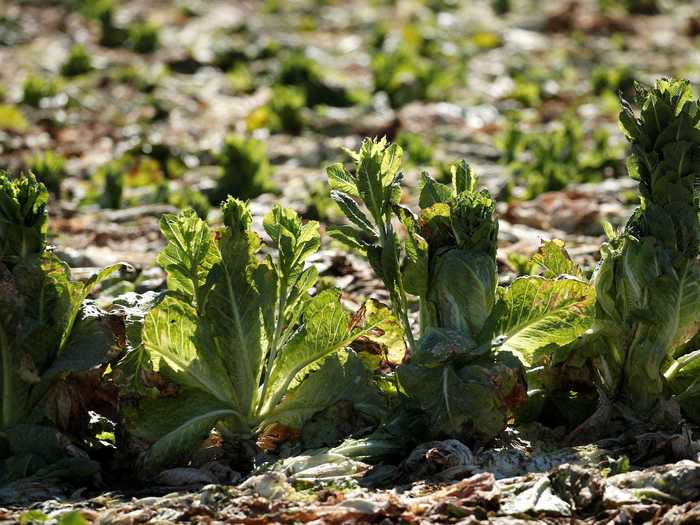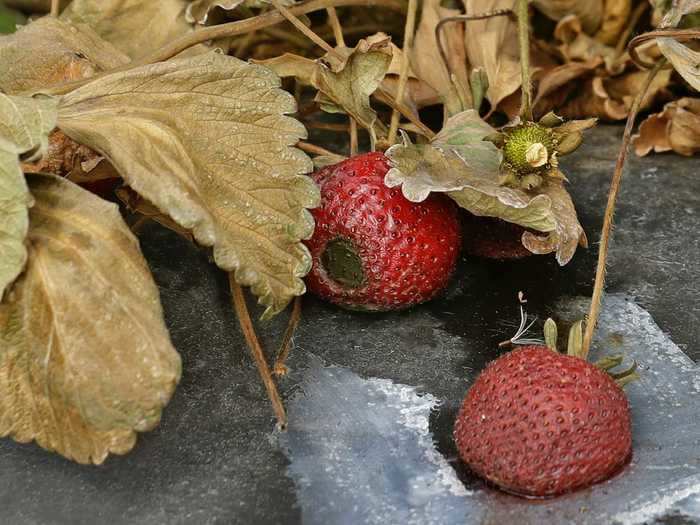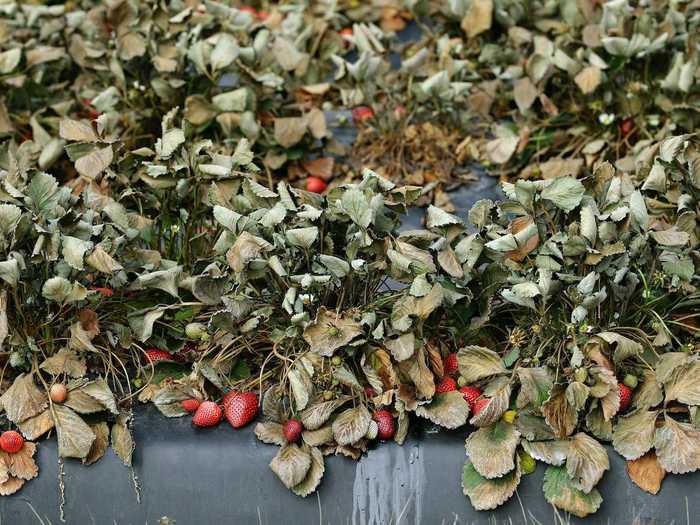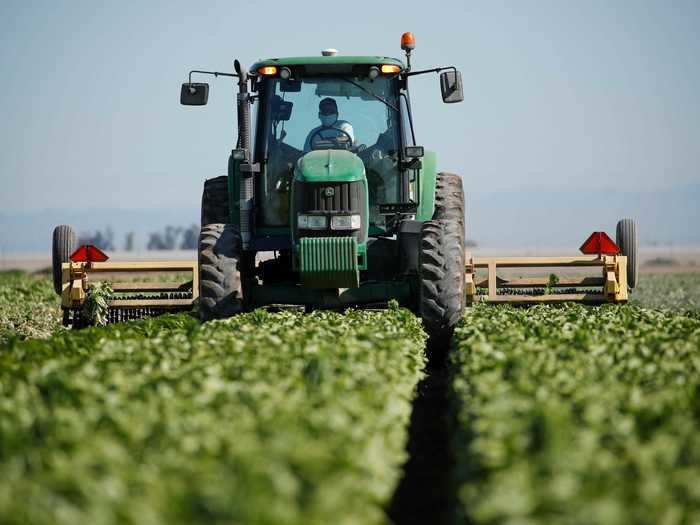A composite image of abandoned squashes in Florida and ploughed romaine lettuces in California.Mike Blake / Reuters / Lynne Sladky / AP
- Tens of millions of pounds of fresh food — including vegetables, fruit, and milk — are going to waste in the US, during coronavirus lockdown.
- The agricultural sector has been hurt by the sudden closing of bulk-food destinations like theme parks, university dormitories, and restaurant chains.
- The cost from March to May could be worth $1.32 billion, according to a National Sustainable Agriculture Coalition report.
- It's a global problem, too. In the Netherlands, a million tons of potatoes are leftover from the previous season, while farmers in Wuhan face ruined lotus roots, and in India, cows are being fed strawberries to get some use out of crops that would otherwise go to waste.
- Visit Business Insider's homepage for more stories
A staggering amount of fresh produce, worth billions of dollars, is going to waste because of the coronavirus pandemic.
Due to fruit and vegetables' short shelf-life, they need to get from the fields to the consumer quickly, or not at all, and unfortunately, much of it isn't making it.
The New York Times reported in the US alone, tens of millions of pounds of food are being destroyed. For example, one farmer had to bury 1 million pounds of onions, while farmers in Wisconsin and Ohio were dumping thousands of gallons of milk.
The cost from March to May, along with the massive waste, could be worth $1.32 billion, according to a National Sustainable Agriculture Coalition report, The Guardian reported.
Lockdown changes have also shown Americans' eating habits — they eat more vegetables when it's prepared for them, meaning at the moment, while restaurants are closed, the demand for fresh produce is down.
It's also a global problem. In the Netherlands, a million tons of potatoes have not been sold, since restaurants have closed and french fries are no longer being made. In Wuhan, farmers are dealing with hundreds of tonnes of ruined lotus root, and in India, cows are being fed strawberries to get some use out of a crop that would otherwise go to waste.
Here are grim photos showing the coronavirus effect on fresh produce and flowers.
Read the original article on
Insider
What's daunting now, according to The New York Times, is that the farmers who have gotten rid of their fresh vegetables will replant with the same crop, hoping some semblance of normality will return by the next harvest. But that's not guaranteed, and the second wave of crops might have to be destroyed, too.
Farmer Ajay Jadhav told Reuters he had no choice but to make manure out of the basil, iceberg lettuce, and bok-choy he grows. Usually, restaurants buy his goods, but he said his peers didn't even want them for free.
In India, lock down's impact on farmers' ability to transport produce has caused some to feed cattle strawberries. The other big reason strawberries aren't selling is that tourists usually buy them, but tourists aren't visiting at the moment.
In the Netherlands, according to Reuters, a million tons of potatoes are leftover from the previous season. This was due to the coronavirus lockdown closing restaurants, which caused the potato market to collapse because, at least partly, it was impossible to serve "patat," or french fries.
Outside of America, it's a similar story in some countries. In Wuhan, China, the original epicenter of the coronavirus, which had been on lockdown, farmers were preparing to throw out hundreds of tons of lotus root, because lockdown had prevented traders from coming to the city.
The Times also reported America's largest dairy cooperative, Dairy Farmers of America, estimated farmers were dumping up to 3.7 million gallons of milk every day.
It's not just fruit and vegetables that are going to waste. In Wisconsin and Ohio, farmers have been pouring thousands of gallons of fresh milk into the ground, according to The New York Times.
Here, oranges lie rotting on the ground beneath trees in Lake Wales, Florida, due to a lack of workers.
While farmers have managed to donate some of their produce to charities and food banks, the short shelf-life is a problem, as well as finding enough space to store all of the produce. It's also an additional cost for farmers to transport the produce, when they're already struggling.
DiMare farming vice president Tony DiMare told the Miami Herald: "It's catastrophic. It's a dire situation, and there's no relief in sight."
Elsewhere in Florida, tomatoes were being sacrificed. The DiMare tomato farm in Homestead, Florida, stretches over about 1,300 acres and provides restaurants with fresh tomatoes. But when the restaurants closed, the farm no longer had any buyers.
A farmer named Paul Allen in Pahokee, Florida, told The Guardian he was plowing between five and six million pounds of green beans and cabbages back into his fields.
So with demand down, farmers faced an unenviable problem: what to do with their fresh goods? A decision had to be made quickly, as fruit and vegetables need to get from the fields to the consumer quickly, or not at all. Unfortunately, for many farmers sacrificing their produce was the only option.
The closure of restaurants might not sound that important, but in America it is. According to data from the Department of Agriculture, Americans spent about $678 billion at restaurants and only about $627 billion at supermarkets and warehouse clubs in 2018.
According to Politico, farms were struck hard by the closing of bulk buyers, like theme parks, restaurant chains, and college dormitories. Many American farms supply almost exclusively to these sorts of food providers, meaning lock down's effects were felt by them acutely.
America's agricultural sector is reeling from the coronavirus. Across the country, beans, squash, and cabbage are being discarded in Florida, lettuce and strawberries are rotting in California, and milk is being poured into the ground in Wisconsin and Ohio.


